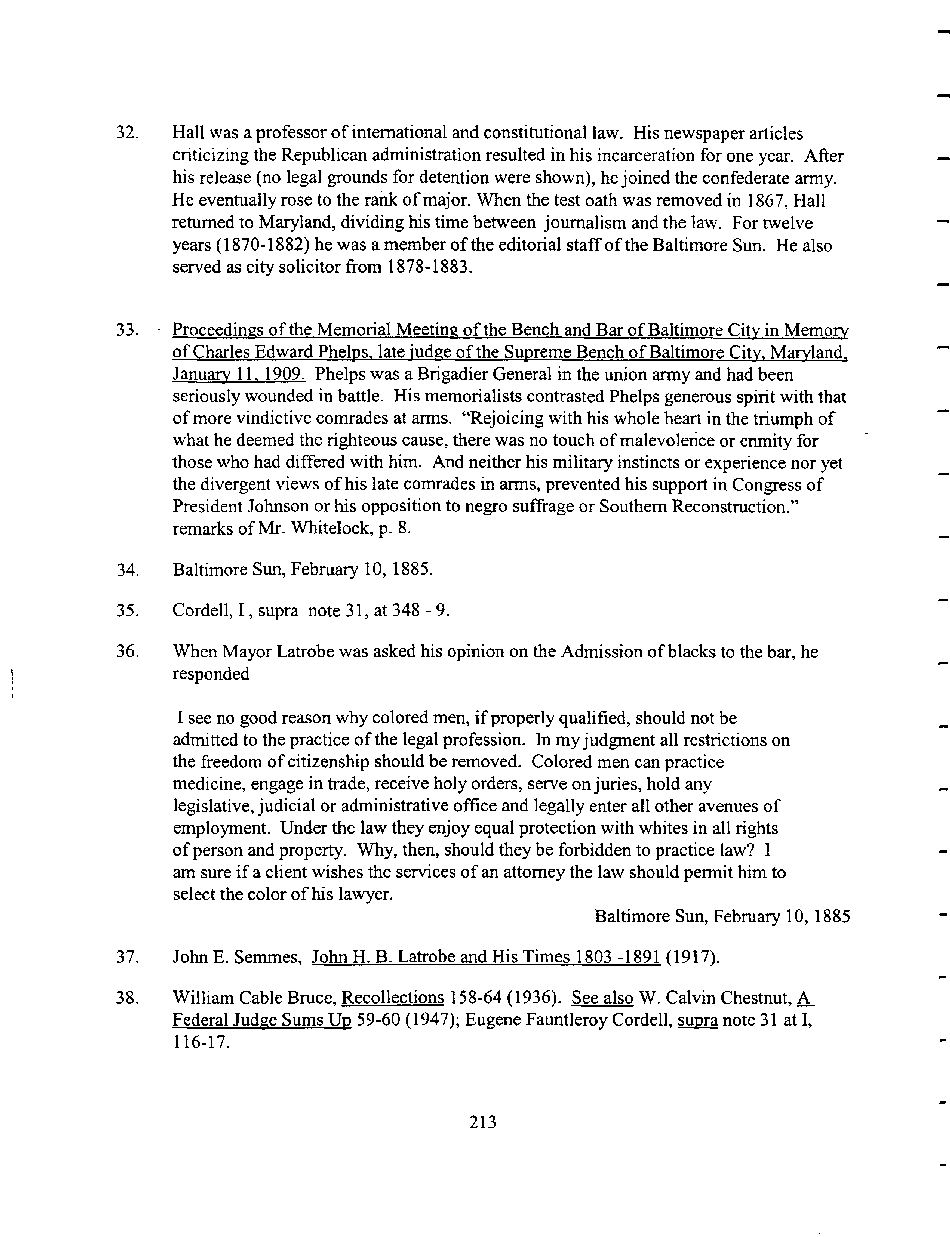|
32. Hall was a professor of international and constitutional law. His newspaper articles
criticizing the Republican administration resulted in his incarceration for one year. After
his release (no legal grounds for detention were shown), he joined the confederate army.
He eventually rose to the rank of major. When the test oath was removed in 1867, Hall
returned to Maryland, dividing his time between journalism and the law. For twelve
years (1870-1882) he was a member of the editorial staff of the Baltimore Sun. He also
served as city solicitor from 1878-1883.
33. Proceedings of the Memorial Meeting of the Bench and Bar of Baltimore City in Memory
of Charles Edward Phelps. late judge of the Supreme Bench of Baltimore City. Maryland.
January 11. 1909. Phelps was a Brigadier General in the union army and had been
seriously wounded in battle. His memorialists contrasted Phelps generous spirit with that
of more vindictive comrades at arms. "Rejoicing with his whole heart in the triumph of
what he deemed the righteous cause, there was no touch of malevolence or enmity for
those who had differed with him. And neither his military instincts or experience nor yet
the divergent views of his late comrades in arms, prevented his support in Congress of
President Johnson or his opposition to negro suffrage or Southern Reconstruction."
remarks of Mr. Whitelock, p. 8.
34. Baltimore Sun, February 10, 1885.
35. Cordell, I, supra note 31, at 348 - 9.
36. When Mayor Latrobe was asked his opinion on the Admission of blacks to the bar, he
responded
I see no good reason why colored men, if properly qualified, should not be
admitted to the practice of the legal profession. In my judgment all restrictions on
the freedom of citizenship should be removed. Colored men can practice
medicine, engage in trade, receive holy orders, serve on juries, hold any
legislative, judicial or administrative office and legally enter all other avenues of
employment. Under the law they enjoy equal protection with whites in all rights
of person and property. Why, then, should they be forbidden to practice law? I
am sure if a client wishes the services of an attorney the law should permit him to
select the color of his lawyer.
Baltimore Sun, February 10, 1885
37. John E. Semmes. John H. B. Latrobe and His Times 1803 -1891 (1917X
38. William Cable Bruce, Recollections 158-64 (1936). See also W. Calvin Chestnut, A_
Federal Judge Sums Up 59-60 (1947); Eugene Fauntleroy Cordell, supra note 31 at I,
116-17.
213
�
|

